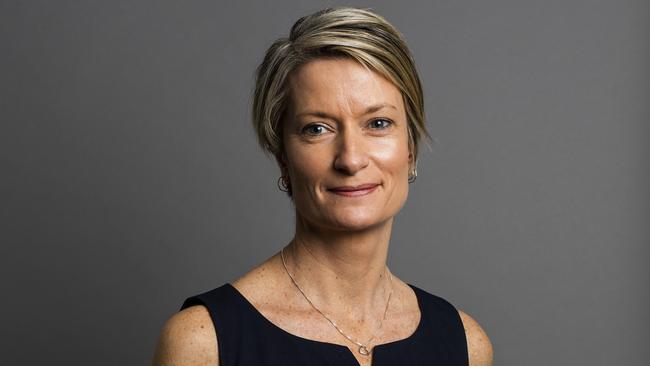Opthea lands Aussie biotech’s biggest raising
Australian eye treatment developer Opthea has launched onto the US Nasdaq market after raising $181m.

Biotech Opthea is in a position to chase a big pharmaceutical partner from a position of strength after closing a $181m raising and listing on the US Nasdaq exchange, according to managing director Megan Baldwin.
Opthea, Australia’s first listed biotechnology company, landed what is believed to be the local biotech sector’s biggest ever equity injection when it closed a $US128.2m ($180.7m) raising late last week to launch the next phase of development of its treatment for wet macular degeneration, an age-related disease that causes blurred vision and significant blind spots in a sufferer’s visual field.
The biotech was floated as Circadian Technologies in 1985, and is now poised to launch late-stage clinical trials for a drug it hopes will treat a debilitating eye disease.
Dr Baldwin told The Australian the equity injection would fund Opthea through the bulk of phase-three clinical trials of its lead product, OPT-302, a treatment the company hopes will improve eyesight in patients suffering wet AMD, when administered with the two other drugs considered the best standard of care for the disease.
The US FDA gave Opthea the go-ahead for clinical trials of the drug in August, and Dr Baldwin said the raising and Nasdaq listing meant the company was now positioned to begin its clinical trial program early next year.
Opthea intends to retain its ASX listing, but Dr Baldwin said the Nasdaq listing would raise the company’s profile among US investors and biotech majors as Opthea considered whether it would bring in a partner to help develop the drug after its clinical trials had begun.
“This is a sizeable Nasdaq listing, and it’s a big one even by US standards, I believe — because a lot of the US IPOs are less than $US100m,” she said.
“So this will increase our profile in the US and internationally, it establishes an Australian company on the global stage.
“One of the really good points about this financing is that you can be in a stronger position by being able to move it forward independently. It means we can make the right choices and only do a partnership deal that is good — we’re not forced into a position of needing to do any one particular kind of deal, we’re independently funding through to the top-line data readout.
“That said, we’ll remain open to partnership, because we recognise you can leverage the expertise and resources of a large pharmaceutical partner.”
Opthea’s Australian shares closed on Monday down 38c at $2.40.
Despite the difficulties of conducting a company roadshow during the coronavirus crisis, 16,000km away from the target investors, and in entirely the wrong timezone, Dr Baldwin said the travel restrictions caused by the global pandemic had probably been a net benefit to the Melbourne-headquartered Opthea.
“It has required us to shift to almost a US time zone, certainly over the last week,” she said.
“I’ve done close to 30 meetings by Zoom or virtually and all in US hours — so we didn’t get a lot of sleep.
“I think in some regards, though, it does put Australian companies — and more generally international companies — on a more even footing. Because even the American companies are doing a lot of things virtually, so there wasn’t really an expectation that, as an Australian company, we needed to jump on a plane for the last six months.”
And while the pandemic made the Nasdaq listing more difficult, Dr Baldwin said she did not anticipate coronavirus complications when contract research companies working for Opthea began recruiting patients to the clinical trials early next year.
“Worldwide there was a slowdown in trials when the pandemic first hit, but I think everyone globally is now getting back to a new normal,” she said.
But because OPT-302 will be administered alongside patients’ current treatments, she said, the pandemic should not affect the rollout of the trials.
“These are highly debilitating diseases, so physicians and patients recognise that they need to stay on their medication and they do to come to their doctors or they will have long-term and potentially irreparable vision loss,” Dr Baldwin said.
“So for companies like ours, those clinical trials are up and running and they’re back on track.
“They’re doing it with a much more cautious, controlled and protected environment to ensure patients are flowing through the clinics at a more reasonable kind of pace, sensitive to the pandemic.”
Opthea says the company expects the first stage of the phase-three clinical trials for OPT-302 to be completed by 2023.




To join the conversation, please log in. Don't have an account? Register
Join the conversation, you are commenting as Logout